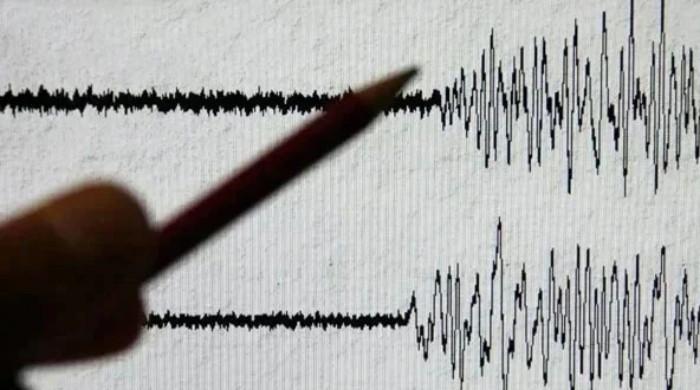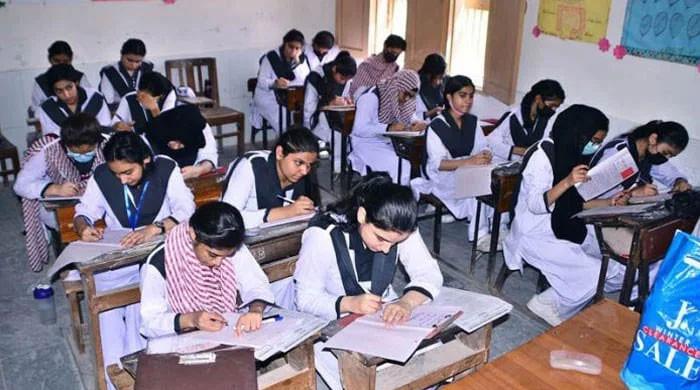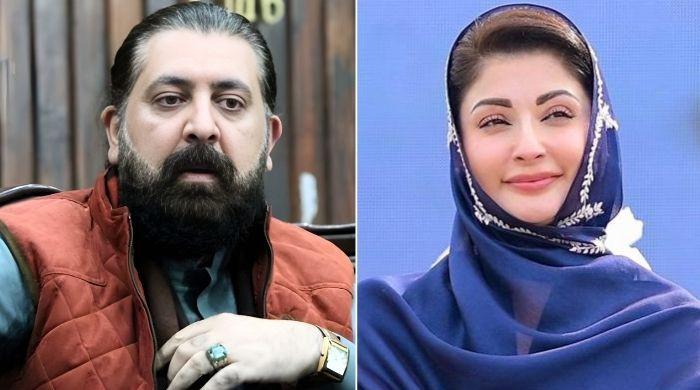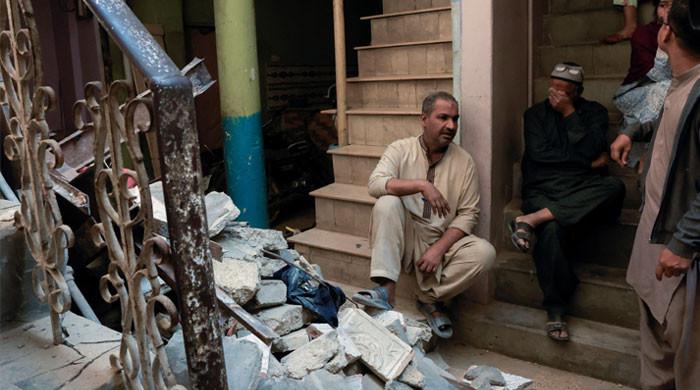CJP Bandial 'approaches' fellow SC judges to end differences
Chief Justice Bandial has added judges to his bench who gave dissenting notes in Punjab election case
April 10, 2023
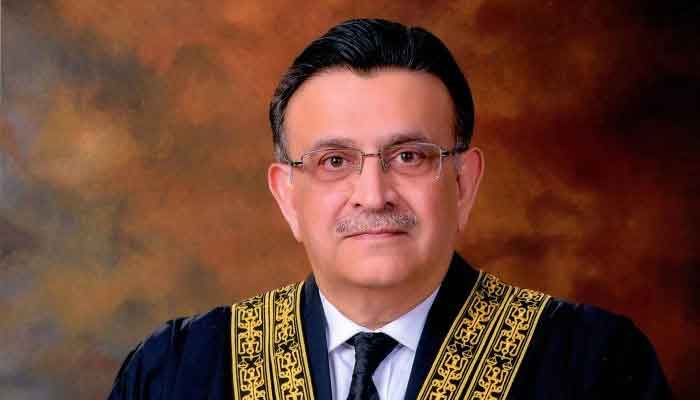
- CJP Bandial holds separate meetings with judges to end rifts.
- Sources say benches formed to end impression of differences.
- Chief justice started process last week that continued on Sunday.
ISLAMABAD: Chief Justice of Pakistan (CJP) Umar Ata Bandial has reached out to his fellow judges to put an end to the division in the Supreme Court as the controversy surrounding the top court's verdict on election delay case in Punjab and Khyber Pakhtunkhwa (KP) continues to deepen.
Following the Supreme Court's verdict, fellow judges, the government and the KP Bar Council have raised questions about the chief justice's "controversial" role with Prime Minister Shehbaz Sharif and other politicians asking the top judge to step down from his position.
According to the sources, CJP Bandial started the fence-mending process last week that continued on Sunday. The top judge is holding separate meetings with the Supreme Court judges in a bid to end the rift among them, added the sources.
The sources further said that the chief justice formed the benches for the next week to end the impression of differences and create a consensus among the judges.
The CJP has added judges to his bench, who gave dissenting notes in the Punjab election case. Thus Justice Yahya Afridi and Justice Athar Minallah will be a part of the chief justice’s bench starting on Monday.
Justice Qazi Faiz Isa and Justice Muhammad Ali Mazhar will also be part of the other bench. Moreover, Justice Mansoor Ali Shah and Justice Ayesha Malik are also included in the bench.
Justice Minallah will be included in a bench with Justice Munib Akhtar and Justice Mazahar Ali Akbar Naqvi while a bench comprising Justice Jamal Khan Mandokhail and Justice Hasan Azhar Rizvi has also been constituted.
Justice Minallah's order
A major development took place last week when the SC bench, headed by CJP Bandial — nullified the Election Commission of Pakistan's (ECP) decision to delay polls till October and ordered to hold snap polls in Punjab on May 14.
However days after that, Justice Minallah, in his detailed order, stated that the suo motu case in the SC was dismissed by 4 to 3 and clarified that “he had not recused nor had any reason to dissociate himself” from the case.
Justice Minallah stated that he agreed with Justice Yahya Afridi’s note on the dismissal of the petition and his reasoning in the short order was “persuasive” therefore he had no “hesitation in concurring with the decision”.
In the note, Justice Minallah reiterated that the “manner and mode” in which these proceedings were initiated had “unnecessarily” exposed the court to political controversies.
Justice Minallah was among the judges who rejected the suo motu notice taken by the CJP Bandial regarding the delay in polls in KP and Punjab on the advice of an SC bench hearing the Ghulam Mehmood Dogar case.
CJP Bandial had formed a nine-member bench to hear the suo motu case earlier.
Two of the nine judges recused themselves from the case, while four — Justice Syed Shah, Justice Mandokhail, Justice Afridi, and Justice Minallah — had dismissed the case.
Justice Isa's suo motu order
Meanwhile, during the proceedings of the election delay case, a three-member larger bench headed by Justice Qazi Faez Isa had ordered shelving all suo motu cases invoked under Article 184(3) of the Constitution.
The bench ordered the postponement of cases being heard under Article 184(3) of the Constitution till the amendments made in the Supreme Court Rules 1980 regarding the discretionary powers of the Chief Justice of Pakistan to form benches.
Later, in his note issued in the suo motu case, Justice Isa stated that the constitution of the bench was against the rules and it could not disregard his bench's majority order.
"Since the gathering in a court of six distinguished judges was not permissible under the Constitution or under any law, the Supreme Court’s order dated 29 March 2023 passed in Case No. 4 could not have been set aside by the 4 April Note," the judge said.
"Decisions emanating from a courtroom overcast with the shadow of autocracy cannot displace the Constitution," the senior puisne judge added.




